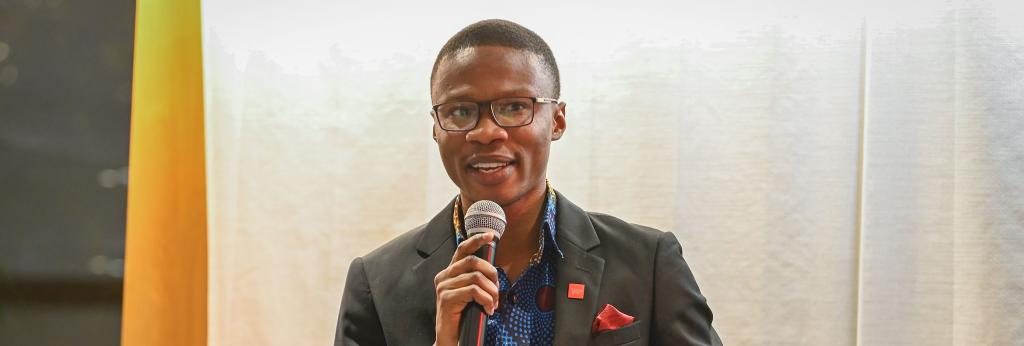I wish to express my most profound appreciation for sponsoring my studies at the Graduate Institute over the past year. Thanks to your unrelenting support, I could acclimatise with the diverse community at the Institute and the International Geneva environment with profound poise and stability.
My first year did not only present me the privilege of using state-of-the-art facilities and encountering venerable professors from the Institute and beyond, but it also imbued in me a unique sense of self-worth in view of the rich scholarly exchange that transpired. I owe my professors and colleagues a million thanks for all such avenues of timeless academic exchange.
Speaking on studies, I needed to adapt to the Institute’s style of scholarship at the outset, which was exhilarating and exacting at the same time. I have spent countless hours behind my computer screen figuring out threads of academic texts for term projects, but I have also had several relaxing times with colleague students over dishes and drinks, thanks to class apéros and GISA events.
Out-of-class sessions in my Multilateral Arms Control and Politics of Commercial Security courses took my colleagues and me to the United Nations Office for Disarmament Affairs (UNODA) and the Office of the International Committee of the Red Cross (ICRC) respectively. Needless to say, as students, we relished such insightful experiences and will treasure them for a good while to come.
What is more, my first-year journey has also significantly shaped my thesis focus. This results from the courses I enrolled in, particularly, my Social Inquiry and Qualitative Methods for International Affairs and Development course. This course provided me the requisite milieu for preliminary literature review and thesis outlining. Thus, I could engage with many seminal texts on global security and peace promotion. In the interim, I intend to interrogate the subject, “the role of interreligious cooperation in the peace, security, and development nexus in post-9/11 Ghana”.
As I aspire to engender peace and cooperation among diverse groups and entities going forward, I am convinced that this inquiry would add some layers to the episteme of religion and global security. I have seized the privilege of being in International Geneva to patronize several conferences and fora over the past year. Notable among them are conferences of the Geneva Peace Week, a DCAF forum on the theme, “Peacebuilding and Sustaining the Peace: What’s Next for the UN Peacebuilding Architecture”, and a World Council of Churches round table on “Rethinking Interreligious Engagement in a Wounded World.” Such events as these have brought me practitioners’ perspectives on international affairs and emboldened me to make relevant inputs as a youth.
Last but not least commendable, I am presently receiving training in the Mandela Mile Leadership Programme (MMLP), a virtual collaborative incubator of the Caux Forum and the Mandela Mile, hosting over 40 young leaders from 21 countries across the globe. This programme has been equipping participants with tried-and-tested leadership values espoused by forerunners in international affairs such as the late Kofi Annan and the late Nelson Mandela. Personally, my experience will culminate in the launch of my incubator initiative on youth economic empowerment and peace promotion in Ghanaian communities, which is inspired by my ongoing Capstone Project on the topic, “Youth Economic Empowerment and Global Security in West Africa”.
Though hampered by the coronavirus pandemic, I intend to work with a local network of volunteers and young entrepreneurs to engender youth financial independence as well as peace facilitation and violence mitigation in Ghana before, during, and after the 2020 General Elections. Progressively, this intervention will be extended to other parts of the globe.
Having said the foregoing, the point stands that none of these would have been realised had the Institute and the Alumni Community not given me a place at the Maison de la Paix. Once again, my most profound appreciation goes to you all for both your past and future contributions.
If you would like to contribute to the Alumni Community Scholarship, or for more information, click here.


